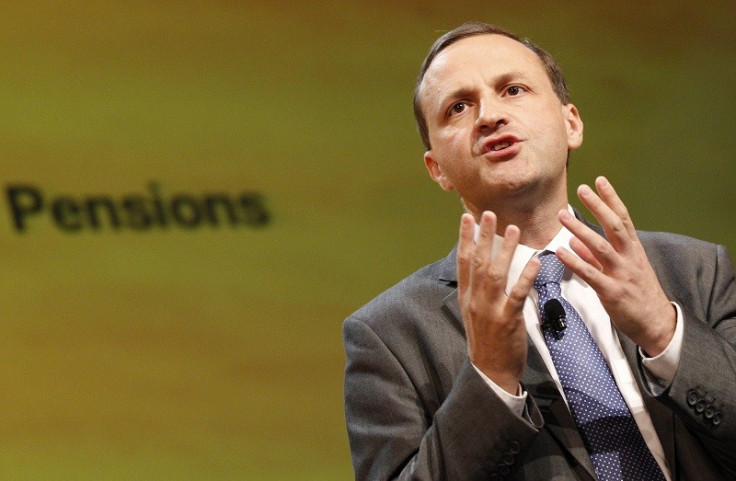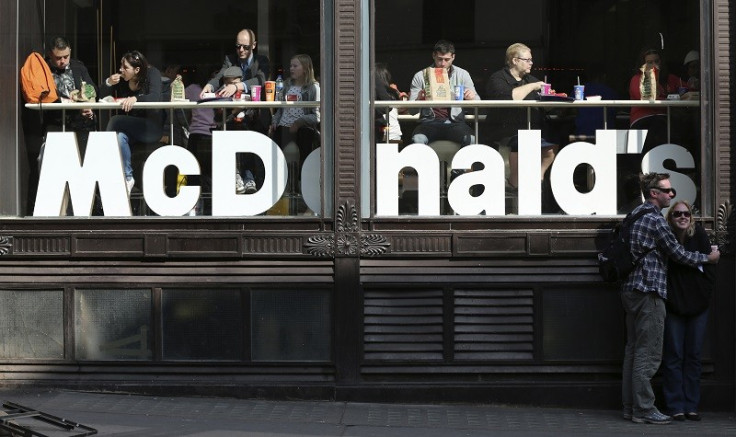Man of Transformation: How is Steve Webb's Flagship Auto-Enrolment Pension Programme Faring?

Gok Wan is best known for making women, and sometimes men, feel beautiful. His sharp sense of style and reassuring personality convinces his onscreen guinea pigs that they have miraculously transformed from dishevelled, crusty cocoons to glowing, glorious butterflies. Wan has won fame, fortune and admiration for his fashion fixes and dramatic designs.
But over the past year Wan has faced a fierce opponent for the prized-title of transformation king.
An unassuming man from the middle of England has attempted to dethrone the celebrity stylist. The unlikely challenger has used his own brand of charm, persuasiveness and government legislation to convince workers to change their saving habits.
His name is Steve Webb.
Webb, the Minister of State for Pensions, has overseen one of the most dramatic overhauls of the UK pension market. The Liberal Democrat has implemented the government's auto-enrolment scheme - an initiative which aims to automatically enrol all eligible employee into a workplace pension scheme between October 2012 and April 2017.
Every eligible UK company has a set staging date to comply with the legislation based on the size of their payroll. There are also compulsory pension contributions from employers and employees under the initiative. Undoubtedly, the scheme has been a mammoth challenge for the government and businesses.
Now, on its first anniversary, IBTimesUK takes a look at how auto-enrolment is faring.
Strong Start
The unprecedented programme has enjoyed a trouble free baptism. The opt-out rates, which indicate how many people have left an auto-enrolment scheme within its first month, have remained surprisingly low.
The Department for Work & Pensions' research revealed, for instance, that just 9% of people employed by the 50 biggest UK employers have opted-out of the savings arrangement. An astonishing result once you take into consideration that the Attitudes to Pensions 2012 survey, which was conducted before the auto-enrolment process began, predicted that opt-out rates would be as high as 30%.
Despite encompassing large swathes of workers (those who are aged at least 22 and under State Pension age, and earn over £9,440 per year), large employers have been able to cope with the pension pressure the government has pushed their way.
But what is their secret for dealing with such demands?
"Many large organisations have a tradition of offering a pension scheme and communicating it to workers, so it may be that employees may be more aware of workplace pension schemes in larger companies," Charles Cotton, a reward adviser at the Chartered Institute of Personnel and Development, explains.
Conversely, Suzanne Burrell, a partner in the pensions team at Shoosmiths, argues that workers may not have opted-out because of a state of inertia. "It's almost like those free trials for magazines or film websites - you sign up for the free trial, and then forget to cancel it," Burrell suggests. "I suspect the same principle is has been working for auto-enrolment."
The government also spent a considerable amount of time and money - a generous £3.5m, in fact - advertising the new scheme. Televisions and buses have carried the "I'm in" catchphrase and a handful of well-known personalities, including Karen Brady (of The Apprentice fame) and Theo Paphitis (of Dragons' Den stardom), have backed the initiative. Seemingly, the message is sinking in.
But Webb, who boasts that auto-enrolment will mean that "pensions are no longer the preserve of the few", has not had a totally trouble free ride. Some employers have been falling behind in meeting the government's new requirements.
The Pensions Regulator, the body charged with enforcing auto-enrolment compliance, has issued at least 35 informal action warning letters, which set a time frame for compliance with the duties, according to a Freedom of Information request.
"Most of the investigations opened so far have been to help employers to comply on time where we had concerns they were not on target," a spokesperson for the TPR stresses. The vast majority of incidences this has been achieved through direct communication without the need to use our powers to compel compliance, says the body.
But why are these employers failing to meet the regulator's standards? Surely they're not all trying to actively avoid the government's rules? According to Sarah Bowles, a senior consultant at MACFinancial Advice, the answer could lie in the complex and heavy nature of the auto-enrolment legislation.
"The over-regulation that the government has put on [auto-enrolment] - [in] trying to make the policy risk free - drives me around the bend because it's really detrimental to people understanding the whole beauty of investment," Bowles argues.
Kate Payne, a partner in DLA Piper's pension team, supports Bowles claim. She says that some of the requirements detailed in the legislation also rely on the insurance market understating what their obligations are. The rules will have to be relaxed at some point, according to Payne.

Crunch Time
Auto-enrolment's biggest test will be between May and August 2014. The TPR has anticipated that approximately 25,500 employers - those with payrolls between 62 and 159 - are due to stage in this period. To put that tremendous figure into perspective, the amount of employers which staged in the same timescale in 2013 was 650. Subsequently, industry insiders have aptly dubbed the forthcoming auto-enrolment compliance and implementation gauntlet the "capacity crunch".
Alan Morahan, principal Punter Southall DC Consulting, says the crunch will come in a number of areas, including payroll provision. "Auto-enrolment is as much, if not more, to do with the ability for an employer's payroll to support the process", Morahan explains. He argues that the government's new real-time reporting regime of PAYE means that many payroll providers are "only just getting to grips with auto-enrolment".
The consultant also stresses that there is going to be an adviser crunch. He says: "We are very, very busy at the moment and we have to start taking into consideration our abilities to resource [employers] in the time available to us."
Moreover, as the workload gets bigger, it is plausible that pension providers may start turning work down. That could see an extreme amount of demand placed on the National Employment Savings Trust defined contribution (DC) scheme, a low-cost arrangement where employees and employers can pay in a maximum of £4,400 each year.
NEST, a not-for-profit-organisation with a public service obligation, cannot turn any eligible employers down. But just because it has been established by the government, does not make the scheme unfashionable. BT and McDonald's, for instance, are just two of 1,000 employers that have already adopted the NEST approach to auto-enrolment.
As the "biggest shake-up in UK pensions for over 100 years" sails over its first hurdle, there are bigger, more dangerous obstacles down the road for Webb, employers and employees. Auto-enrolment may work well with big companies, for example, but will smaller firms cope with the demand? Will the capacity crunch create a major roadblock for the project? And how long will it take for people's inertia to fade or will basing government policy around an ignorance of saving backfire?
© Copyright IBTimes 2025. All rights reserved.






















